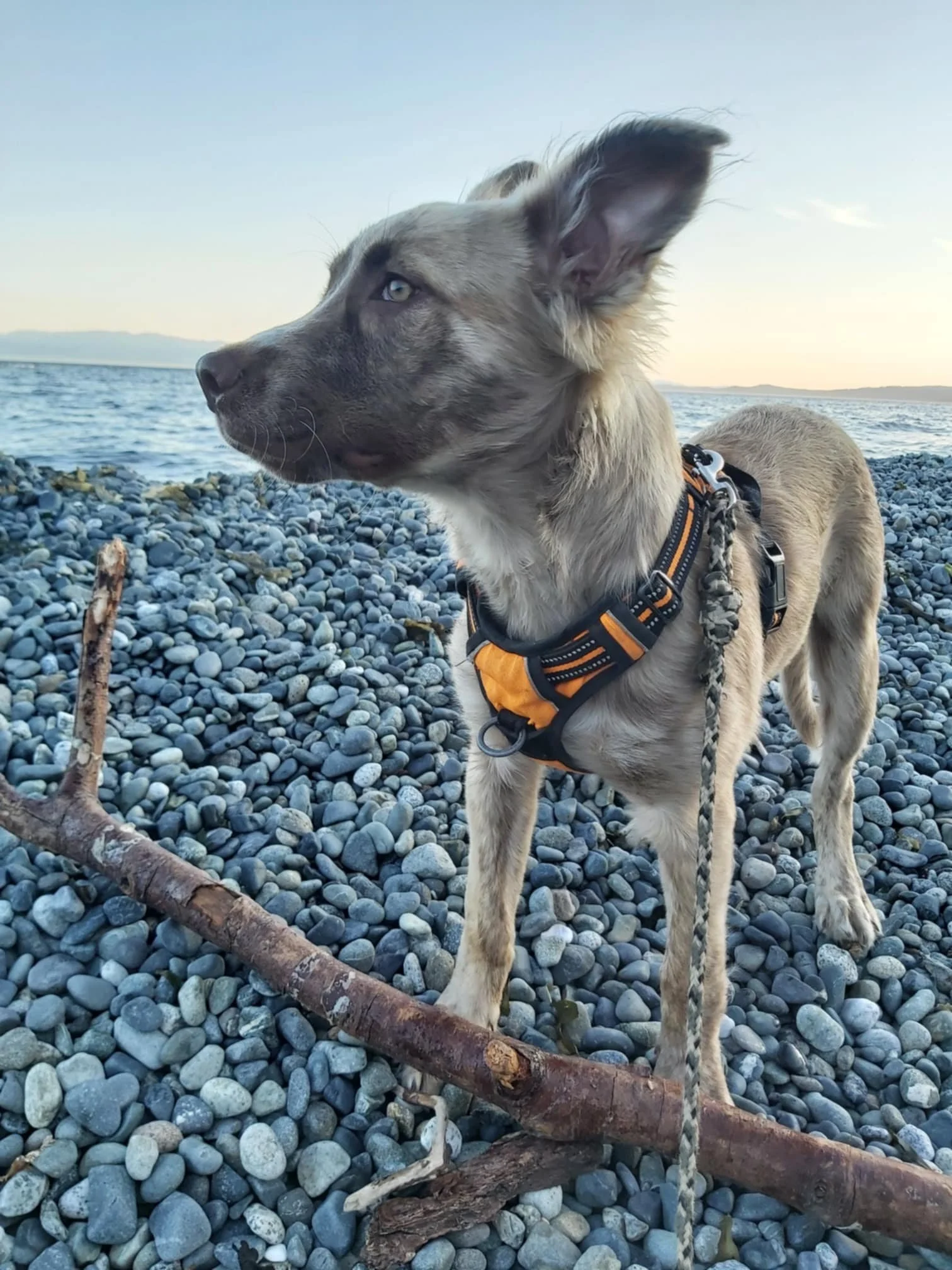Lessons From A Puppy
Happy September! It may have been awhile since we connected, but it’s for a good reason. Because… I recently adopted a puppy! And while this new experience has enriched and enhanced my life in many ways, it’s also come with many, many lessons.
As I reflect on navigating this new part of my life, I wanted to share some percolating thoughts with you- but don’t worry, I promise that it still related to supporting neurodivergent kids! Keep reading to find out how I connect 3 guiding principles about neurodiversity-affirming practice to my new puppy situation.
So my puppy, Monty, is not what you would consider a ‘chill’ or ‘easy to manage’ puppy- and really it feels beyond the typical ‘puppy energy’. While he is so intelligent, curious, and animated, he also seems to require constant attention, stimulation, and co-regulation. And please don’t get me wrong here… I’m NOT in the habit of comparing kids to dogs. Yet I do recognize some parallels with what parents have shared with me about navigating situations with their kids.
I usually only spend a snippet of time with kids in their homes or out in the community, but parents, caregivers, and educators are the ones that are doing the hard work in supporting kids throughout their whole day- everyday! Navigating caring for a puppy has given me a little more insight into this and the energy required to offer continuous support for another.
It reminded me of the 3 guiding principles of neurodiversity-affirming practices that I share in my workshop, Nurturing Neurodivergence (there are many more, but we focus on these 3):
Prioritize creating connection (and a feeling of safety)
Incorporate interests and passions into learning and play
Demonstrate flexibility
And what I’ve come to realize is that these principles can be applied to many aspects of our lives when we find ourselves in the supportive role of another.
In thinking about the first principle: in order to support Monty to grow and thrive, it was important to me that I started from a place of focusing on creating connection- helping him to build a sense of safety and trust in his new environment and the new people interacting with him. This same principle is at the foundation for every client of mine. None of us can learn from a place of fear and mistrust in those around us- our nervous systems will just simply not allow it. A child requires a strong need to trust the adult they are with before they will be willing to learn new skills alongside them. This is mirrored in my interactions with my puppy, and my support motto still applies: connection over compliance!
For the second principle: while helping Monty to learn new (and important!) skills, it has required me to get creative and lean into my sense of play. I want him to enjoy learning and engaging with his new family, and so by focusing on learning through play, we’ve maintained trust and helped him learn the way he learns best. I use this exact same principle in supporting children. When we focus on starting from and incorporating a child’s interests into our interactions and learning opportunities, we tap into the way they learn best. And if you remember, this is particularly important for autistic kids as they are often monotropic learners!
For the third principle: life with Monty has really shown me the importance of needing to be flexible. There are moments where everything seems to be going swimmingly, and then BOOM - it feels like all of a sudden I’ve got a dysregulated puppy on my hands who needs support to find an outlet for his energy (that isn’t tearing up the furniture, or jumping up to bite on my clothes). I know it can feel this way for the kids we support too. Things don’t go according to plan, no matter how well thought out they may be. So when working with kids, we have to be ok with needing to pivot - to changing our plans, pulling out a new tool or strategy to try, or just even sometimes stopping to be still for a moment. This is a big part of creating engagement with kids, and we do this by being flexible with our thoughts and actions.
I believe that life offers us many experiences to test out how we stay in alignment with our own personal values. And puppy Monty has shown me the importance of staying true to my values in both my personal life and my role as a practitioner supporting autistic children. So there you have it, life lessons from a puppy.
I’d love to know which guiding principle resonates the most with you in your experiences supporting neurodivergent kids.
And I’ll make sure to share more of my guiding principles with you in the future, so that you can continue to go out there and make a positive impact in the world.
- Aryn
Want to learn more about supporting autistic kids using neurodiversity-affirming practices?
Then here are 3 ways we can stay connected:
1. Check out Wild Seeds SLP on social media:
Instagram: @wildseeds_slp
YouTube: @wildseedsslp
2. Sign-up for my online 2-hour introductory workshop
Nurturing Neurodivergence: An Introduction to Affirming Practices and Support for Autistic Children
3. Join the waitlist for the REWILD group program
REWILD: Building Supportive Connections with Autistic Children
A comprehensive and strategy-focused program for caregivers and educators

